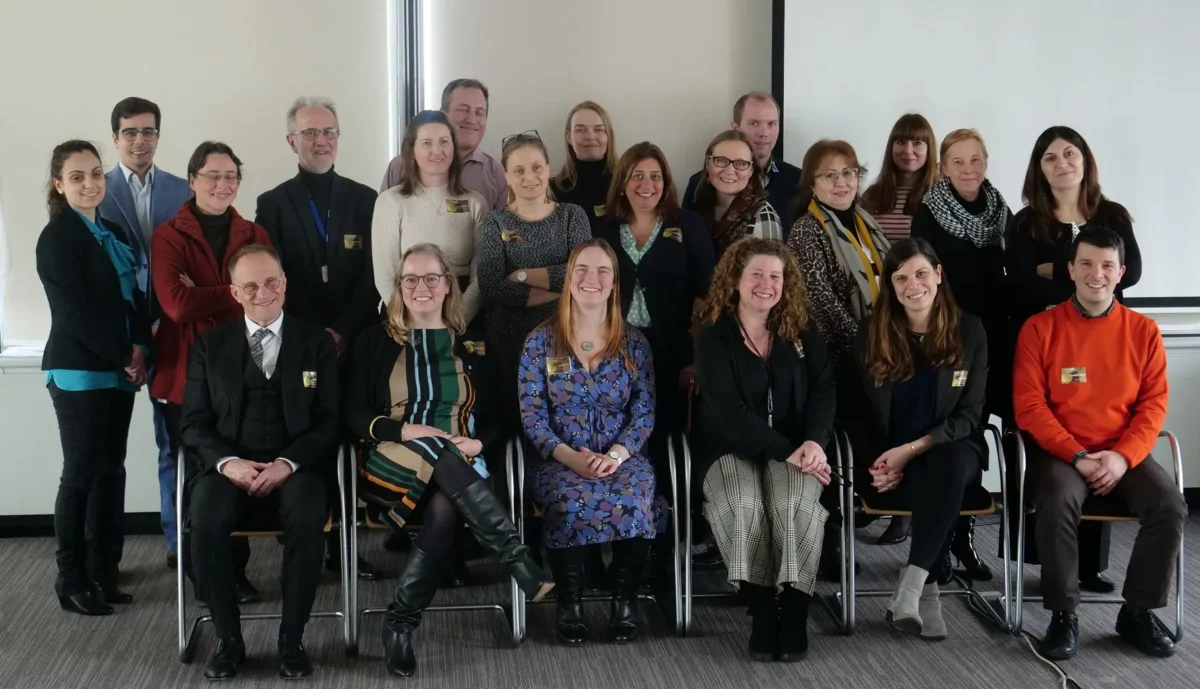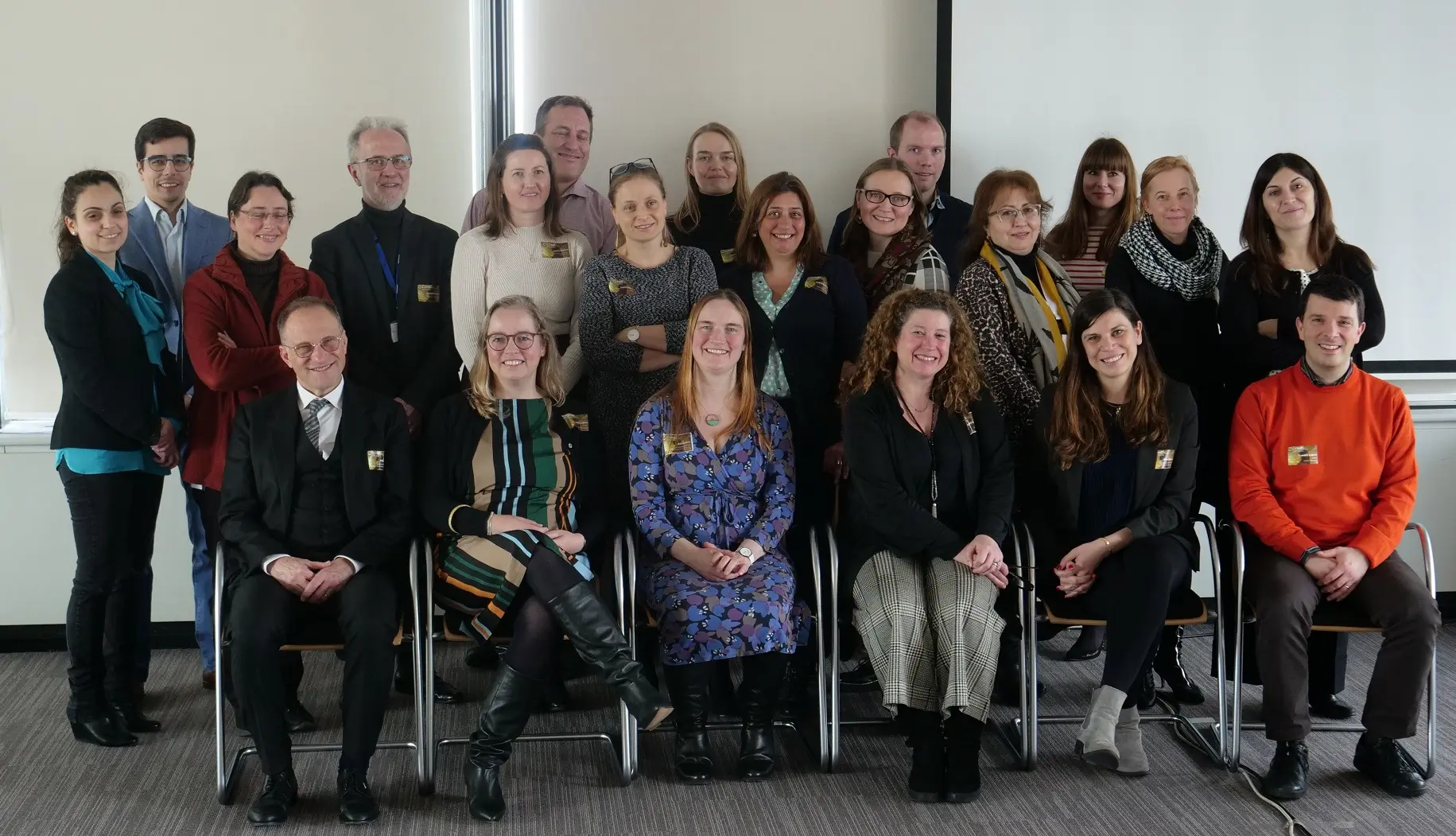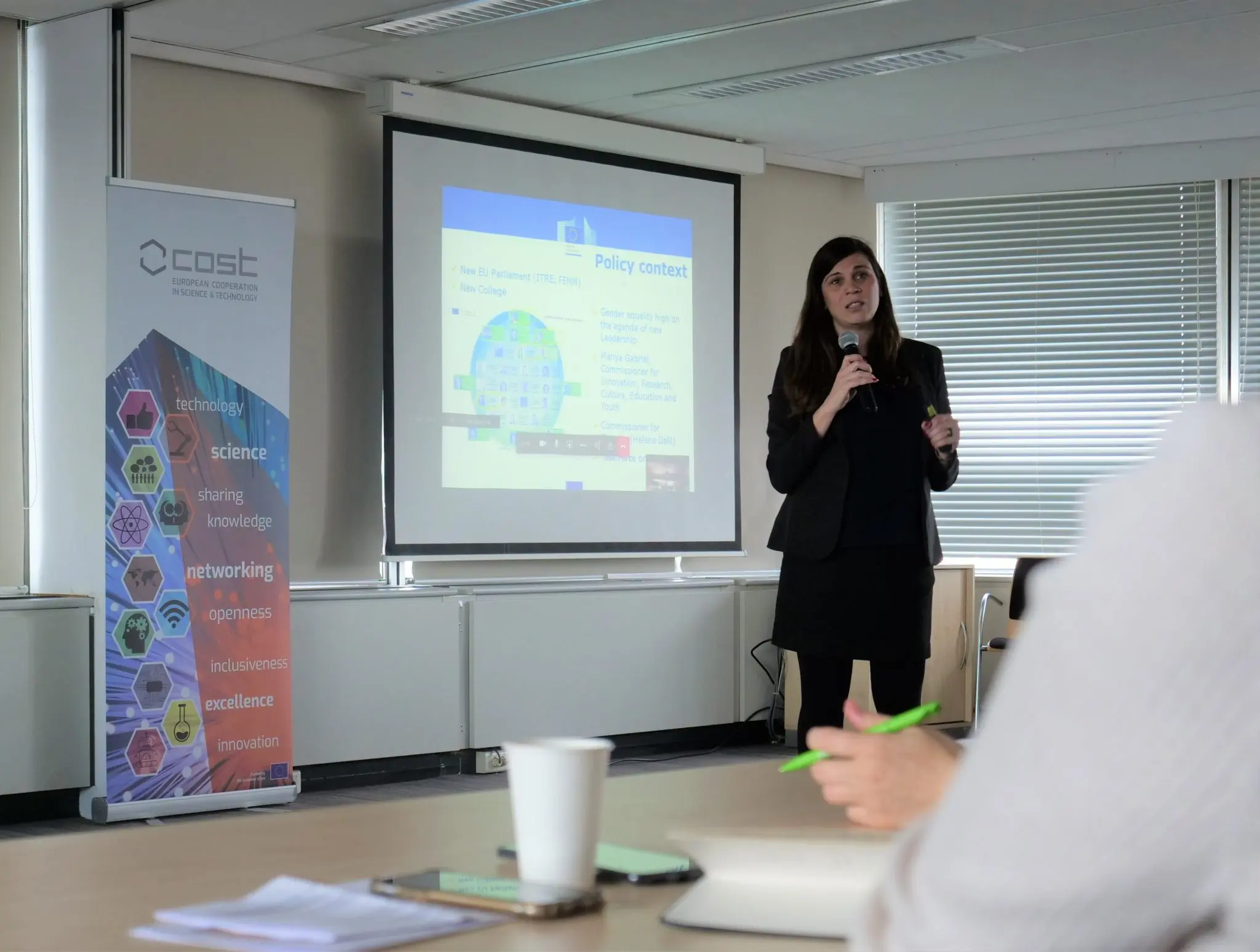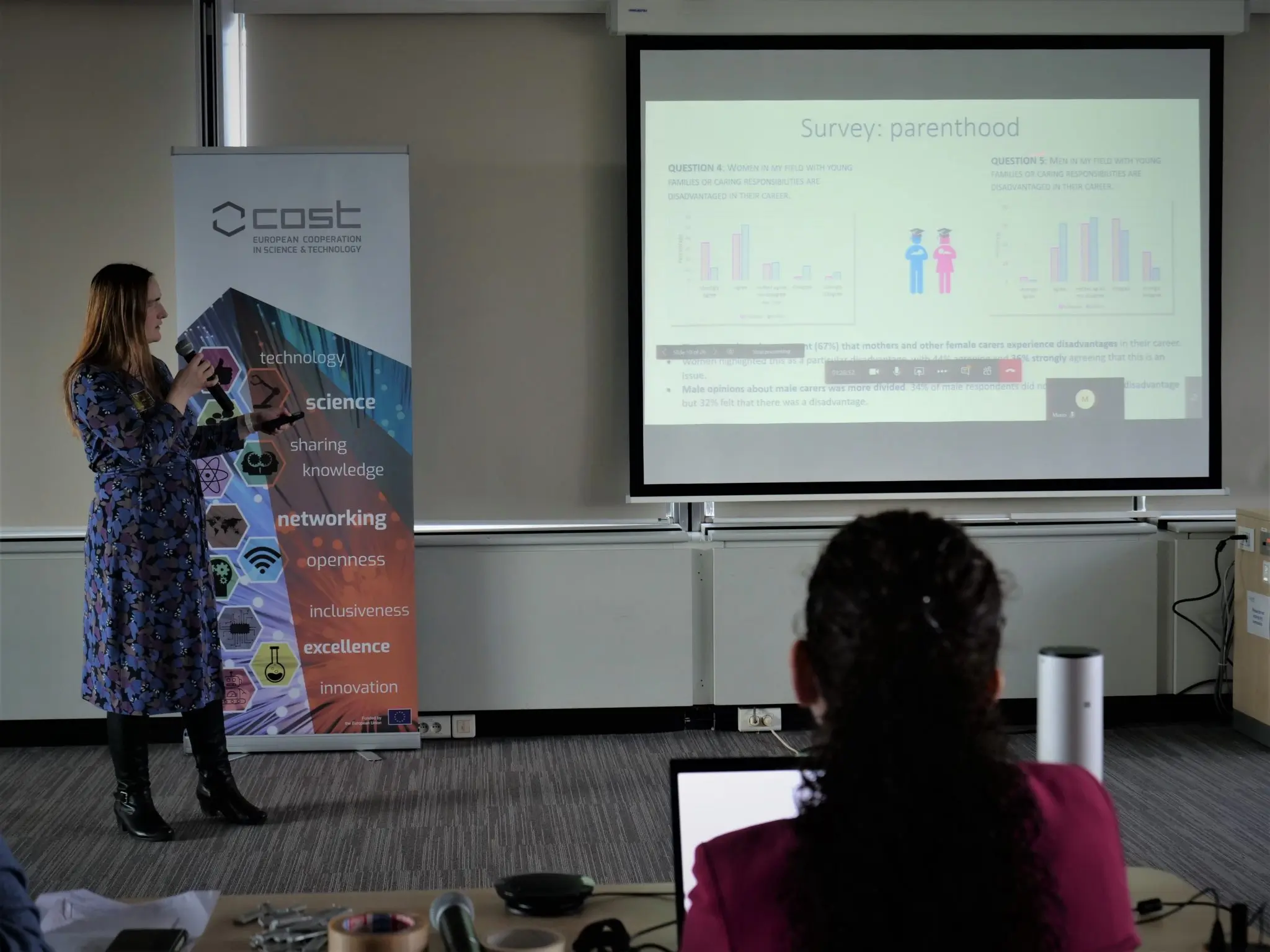Over 5000 European researchers in academia and industry are involved in the Quantum community, firmly placing Europe at the forefront of innovation. However, women are woefully underrepresented within this number, a situation that is echoed within the wider research community, where according to the UN, women comprise only 30% of total researchers.
Above: Attendees of the Women in Quantum Technologies: What are the challenges event
Coinciding with the International Day of Women and Girls in Science, 11 February, European Cooperation in Science and Technology (COST), hosted a working lunch event at their office in Brussels, on Women in Quantum Technologies. The event discussed the current state of play for women’s careers and innovative ways to ensure greater levels of equality in the future.
The Women in Quantum event was created in recognition of the successful work by COST Action Nanoscale Quantum Optics in targeting gender imbalances. The Action undertook surveys, discussions and awareness sessions at the beginning and end of their 4-year working period to better understand gender attitudes from both women and men towards women working in science. This work provided key figures to evaluate a true picture for women.
Lunchtime event – A forum for ideas and discussion
COST Policy Officer, Judith Litjens and Science Officer, Mickael Pero opened the event by outlining the key aims, before Prof. Mario Agio presented the breadth and scientific focus of COST Action Nanoscale Quantum Optics, which undertook the gender surveys, as well as engaging universities, industries and start-ups, before creating an NQO roadmap. Since this Action commenced, several companies have emerged or expanded their own activities in the field of NQO.
Above: Mina Stareva presents insights into gender equality in EU research and innovation
Head of the Gender Sector at DG Research and Innovation, Mina Stareva, presented insights into gender equality in EU research and innovation, noting that She figures from 2018 demonstrate a picture of overall improvement but “a lot more remains to be done to achieve gender equality”.
Stareva discussed societal challenges tackled by Horizon 2020 and ways to create lasting effects through evaluation and monitoring, outlining the biases within research and the 3 objectives of gender equality, gender balance and integration of the gender dimension in R&I. She stressed the importance of using a systemic approach to target universities to change practices because women now outnumber men in higher education but are not progressing to higher levels.
Despite this picture of inequality, she assured that gender equality is a high priority for the new leadership of the European Commission and within Horizon Europe, the incoming framework programme for research and innovation. Stareva strongly encouraged more women to apply for EU prizes such as the EU prize for Woman Innovators, noting that last year only 120 applications were received for the competition. In 2018, COST MC member, Dr Gabriella Colucci was nominated as a finalist.
Prof. Ruth Oulton presents the gender surveys
“This is a big journey for me because we started off not knowing what to do with the gender balance in our Action. We realised there are very low numbers in quantum and when we started to look into this, it became clear why.”
Above: Prof. Ruth Oulton outlines key findings from the gender surveys
Prof. Oulton then presented key findings from the gender attitude surveys, outlining that both women and men held negative bias towards female researchers. This bias impacted women on a day to day basis, leading to a lower rate of research paper acceptance, presentation slots at conferences and likelihood of being hired. Despite the obvious negativity, 56% of men surveyed believed that there were no differences in opportunities for women regarding career advancement. A separate study conducted in Spain, which was not associated with the Action, revealed that a man with children is 4 times more likely to be promoted to full professor than a woman with children.
The Action’s survey also revealed that sexual harassment was a significant issue, with 50% of women declaring that they had experienced incidents, with this figure rising to 83% of women in senior positions.
Prof. Oulton explained “quantum information science is very important right now. The Quantum Technology flagship has been funded for 1 billion euros over the next 5 years, which will fund several hundred research scientists.”
It is clear that interventions must be staged to ensure that women are fairly represented and have access to these roles, but what actually works to change hearts and minds? Oulton revealed that discussions help, particularly in regard to unwanted behaviour from men towards women. Most significantly of all, however, was senior male figures mentoring junior females within an organisation, has been found to be the most effective way to raise awareness regarding gender equality compared to any other intervention.
Questions and answers
Following the presentations, the audience were invited to participate, with many attempting to identify why there was a lack of women in quantum.
“Lower participation of women in research funding indicates that women must be somewhere else.” Fabio Taucer, Deputy Head of Unit for the JRC
“Quantum is young and people working in this sector are taking more risks. The education system teaches boys to take risks and girls not to. Has this led to a dimension where girls cannot join?” Dr Andreas Jenet, Science Officer for the JRC
It was noted that many earlier interventions, such as structural reform in universities, mentoring and messaging within lower levels of education could all play a key role in positive change. Developing a wider pool of female role models was also noted as a way to encourage greater numbers of women into STEM.
Prof. Oulton summarised “There is a perception that quantum requires natural ability to succeed but it is similar to every other science discipline in that success is mainly down to hard work.”
Further information
Science with and for society 2020
Slides from Mario Agio presentation
Slides from Mina Stareva presentation
Slides from Ruth Oulton presentation
Information related to the event



